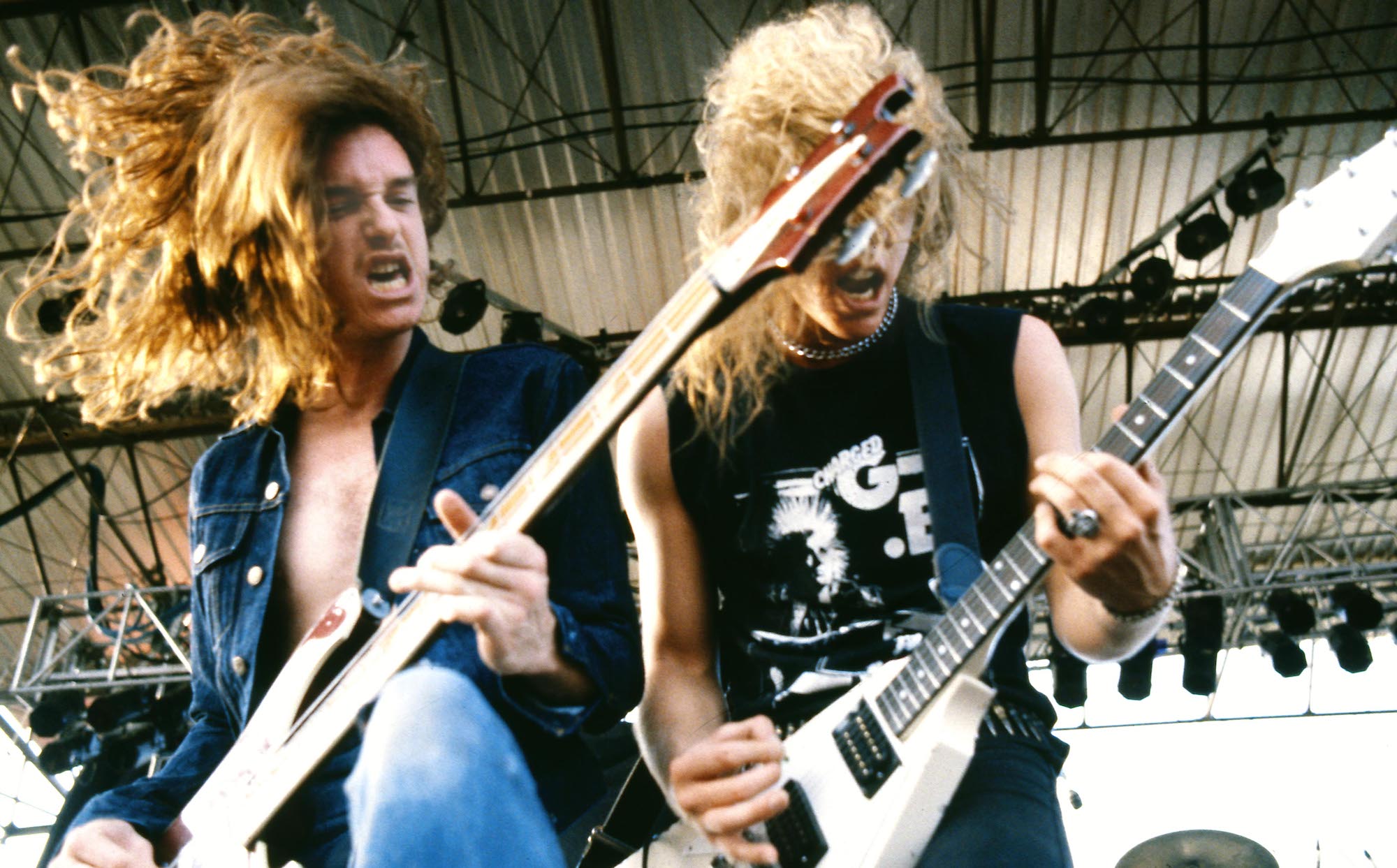“There aren’t many bassists that could do this job. Playing with Metallica is the most demanding gig there is”: Robert Trujillo reflects on the legacy of Jason Newsted and Cliff Burton
If you know your Metallica history, you’ll know that Robert Trujillo is the fourth player to fill the Metallica bass role

Robert Trujillo was born to be in Metallica. He’s one of the heaviest bassists you'll ever hear, and he also looks strong enough to survive what is surely one of the toughest gigs in rock. His CV is pretty impressive, too.
After developing his bass craft with hardcore favourites Suicidal Tendencies, he later formed the funkier outfit Infectious Grooves before taking on two of the most demanding jobs of his career – Zakk Wylde's Black Label Society and a seven-year stint with Ozzy Osbourne.
It was just the experience Trujillo needed to prepare him for life in Metallica. Lest we forget, he joined the band at its lowest ebb. Its members were still reeling from the acrimonious departure of bassist Jason Newsted, James Hetfield's eight months of rehab, and the difficult recording of the aptly named St Anger, documented in the film Some Kind of Monster.
“I feel like I've had so many challenges,” Trujillo told Bass Player. “You know, I live in Los Angeles, but since I joined the band I've been spending more time in the Bay Area, and I actually really like it. Los Angeles has become so overpopulated and blown out. San Francisco has such a nice balance, almost like a funky '70s flavour to it. The way LA used to be back in the Cheech & Chong days!
"But the biggest challenge has been with my bass playing. I'm not being disrespectful to all the bass players out there, but there aren't many bassists that could do this job. Playing with Metallica is the most demanding gig there is.”
If you know your Metallica history, you’ll know that Trujillo isn’t the only one to have filled the bass role. There are also three other names in the family tree.
The first, Ron McGovney, joined in January 1982. His membership was to be short-lived. The story goes that Lars and James went to see a band called Trauma at the legendary Whisky-A-Go-Go on the Sunset Strip in Los Angeles. The bassist in the band was one Cliff Burton, whose break-neck bass style left the duo open-mouthed, and apparently determined to poach his unique talent.
All the latest guitar news, interviews, lessons, reviews, deals and more, direct to your inbox!

The band pursued Burton until he gave them an ultimatum. He would join on the condition that they relocate from LA to his hometown of San Francisco. It's a testament to his talent that Metallica agreed. Burton joined in September 1982. McGovney was history.
Burton played on some of Metallica's finest recordings, including Kill'Em All released in 1983. Ride The Lightning followed in 1984, and then the album that many believe to be the band's masterpiece, Master Of Puppets in 1986.
“Cliff was amazing for Metallica. His ideas, his presence, and where he was taking the bass and taking metal, were so special. And his stage presence – he was such a physical player. He played what he felt, and that was the bottom line. His approach was, ‘I’m gonna play what I feel, and if you don’t like it, screw you!’
“He used to ask Kirk to show him Lynyrd Skynyrd guitar solos so he could play them on bass, and not many bass guitar players were doing that back then. I thought that was so cool. Cliff was a force on a lot of different levels.”
By 1986, Metallica were riding high, but the year was to end in tragedy. While on tour in Sweden the group's tourbus skidded and crashed. Burton was trapped under the bus and killed. It looked like Metallica had been dealt a blow from which they would never recover, but they made the decision to carry on, and began the search for a new bassist.
Jason Newsted joined in October 1986. For his audition he had learned the band's entire back catalog. When they asked him which song he wanted to play he replied, “whatever song you want.”
His first recording with Metallica was the Garage Days Revisited EP released in 1987. Newsted had a 14-year career with the band that ultimately went sour. After one too many disputes with the other band members he called it a day, and left in January 2001.
Trujillo officially joined in 2003, and, more than two decades later, there's no question he has earned his spot with the legendary band. “I had some hard shoes to fill. Both those guys are incredible players.”
“I really appreciate Jason Newsted. Considering he's a pick player, and the speed and dexterity involved in this music, I think it's a tall order. But he was really keeping it and holding it down, keeping it solid – more simple than Cliff, but in a good way.
“I love the fact that we’re all different. We all have our thing that we’ve brought to the band, but I also have my own style and I like to express that.”

Nick Wells was the Editor of Bass Guitar magazine from 2009 to 2011, before making strides into the world of Artist Relations with Sheldon Dingwall and Dingwall Guitars. He's also the producer of bass-centric documentaries, Walking the Changes and Beneath the Bassline, as well as Production Manager and Artist Liaison for ScottsBassLessons. In his free time, you'll find him jumping around his bedroom to Kool & The Gang while hammering the life out of his P-Bass.

